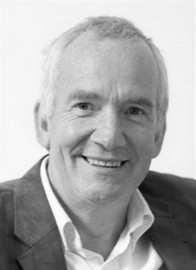“When the stories a society shares are out of tune with its circumstances, they can become self-limiting, even a threat to survival. That is our current situation.” David Korten (2006), The Great Turning: From Empire to Earth Community.
Humanistic psychology in the second half of the 20th century made a revolutionary contribution in putting the human individual back at the heart of psychology and psychotherapy, and was in its time radical and liberating. However, in the 21st Century, and in a different world, we need to go well beyond individualism and human-centrism.
Peter’s Lecture explored how humanistic psychology needs to radically renew itself to contribute to this urgently needed shift in human consciousness. He addressed some of the many challenges that now face the whole human family and the ‘more than human world’ – notably, the ecological crisis, the emergence of so many faith-based conflicts, and the dangers of territorialism.
The challenges call for a new marriage between thinking systemically, modes of being, patterns of relating, and a co-created spirituality – in other words, a radical re-thinking of our basic assumptions, and epistemology: our very way of thinking and making sense of the world. Peter spelled out the implications of this for humanistic psychologists and therapists. In the afternoon, the inquiry continued experientially.

Professor Peter Hawkins has been involved with Humanistic Psychology since the late 1960s, was the founder of the Bath Centre for Psychotherapy and Counselling, the first chair of the Humanistic and Integrative Section of the UKCP, and founder of Bath Consultancy Group. He is currently Professor of Leadership at Henley Business School. He is an international thought leader and best-selling author in the areas of Leadership, Teams, Coaching, and Supervision. He is also a gardener, and a teacher and retreat leader in the Sufi Way. His latest writing explores both ecological and systemic thinking, and more importantly ecological and systemic being.
You can listen to Peter’s lecture here:
« 2014: Toni Gillligan "Moving Beyond 'Who's to Blame?' A Critique of Complaints Procedures"
 Marianne Fry Lectures
Marianne Fry Lectures